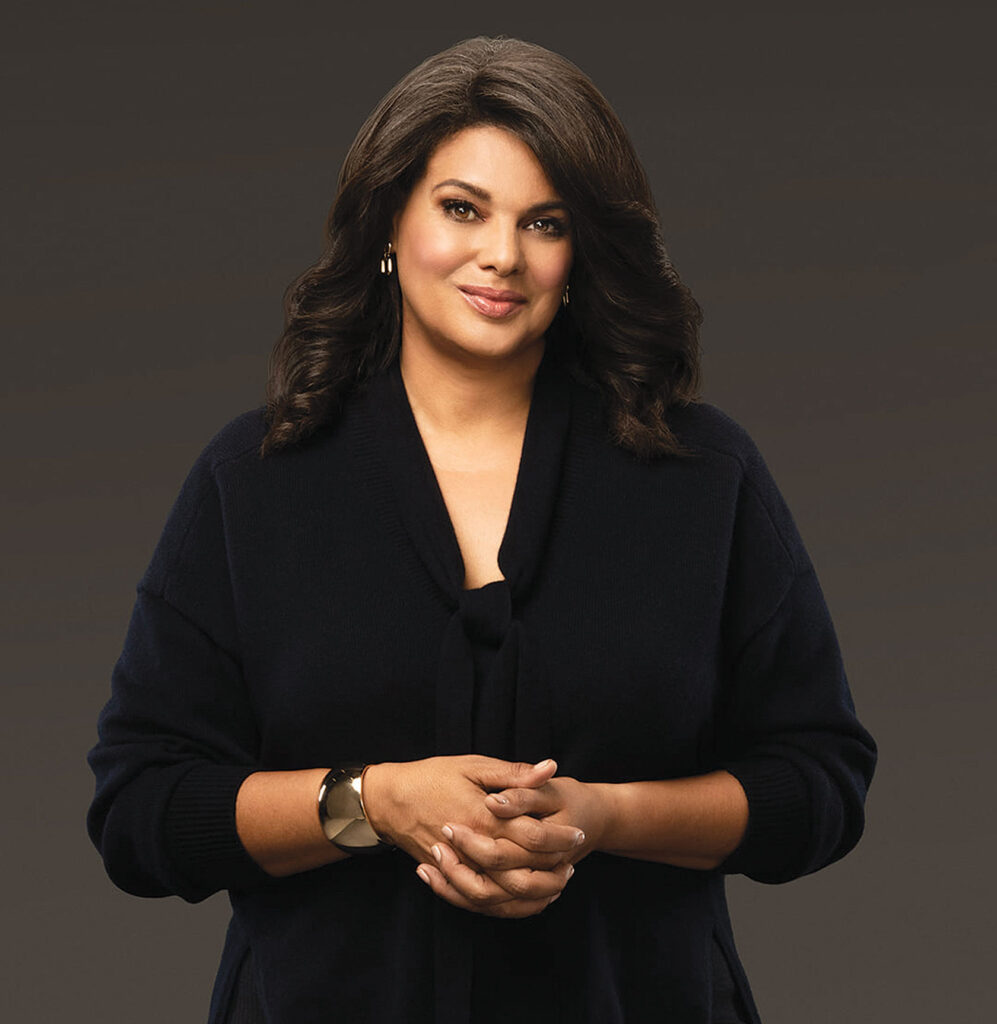CNN’s Sara Sidner’s breast cancer diagnosis sheds light on disease’s effect on Black women

CNN anchor Sara Sidner announced recently that she is undergoing treatment for stage 3 breast cancer. During an emotional segment on CNN News Central, she told viewers she is in her second month of chemotherapy and will receive radiation and a double mastectomy.
“I have never been sick a day of my life. I don’t smoke. I rarely drink. Breast cancer does not run in my family. And yet, here I am with stage three breast cancer,” Sidner, 51, said on air.
Sidner touched on aspects of breast cancer that impact all women, but also Black women specifically. Here are three points everyone should know about the disease.
FACT: Black women get breast cancer less, but die more often.
As Sidner explained, “stage 3 [breast cancer] is not a death sentence anymore for the vast majority of women.” But as she researched the condition, she learned about a harrowing disparity.
“If you happen to be a Black woman, you are 41% more likely to die from breast cancer than your white counterparts,” she said.
An estimated 13% of women in the United States develop breast cancer in their lifetime, and about 2.5% die from it, according to the American Cancer Society. Further, the organization reports that Black women have a 4% lower incidence rate compared to white women but a 40% higher death rate.
Black women are also more likely to develop breast cancer before age 40, but when diagnosed at any age, it’s often more advanced and aggressive forms of the disease, such as triple-negative and inflammatory breast cancers.
FACT: Breast cancer is a mental battle too. Community can help.
Living with breast cancer impacts the mind, just as it does the body. Sidner told viewers that every single day that she “breathes another breath,” she celebrates because she’s still here with others.
“I am here with my co-anchors, my colleagues, my family. And I can love and cry, and laugh, and hope. And that, my dear friends, is enough,” she said.
One-in-four women with breast cancer experience depression and are more likely to experience one or more of the following conditions: addiction, anxiety, fatigue, insomnia, memory loss, mood swings, or post-traumatic stress disorder.
The mental illnesses can be more severe if a person was diagnosed at a younger age, had prior traumatic experiences of mental illness diagnoses, lacked access to higher education, or had a lower income.
Lacking social support from family, friends, or community could also contribute to mental challenges among women living with breast cancer. On the contrary, those who complete treatment and survive breast cancer could have a better quality of life if they’re supported socially.
RESOURCES: Do self-exams and find free screenings.
Sidner urged women to get examined annually to prevent advanced diagnoses. “To all my sisters — Black and white and brown — out there, please, for the love of God, get your mammograms every single year. Do your self-exams. Try to catch it before I did,” she said.
Whether performed at home or a clinic, breast examinations are accessible. Here are two free resources for preventative care:
• The Centers for Disease Control and Prevention (CDC) sponsors free breast cancer screenings and diagnostic services for low-income, uninsured, or underinsured women. To find out if you’re eligible for care at a location near you, visit the program’s website.
• According to the National Breast Cancer Foundation, Inc., adult women of all ages should perform self-exams at least once a month. Visit their website to learn three techniques for self-examination.
This story appeared in Word in Black at wordinblack.com.






